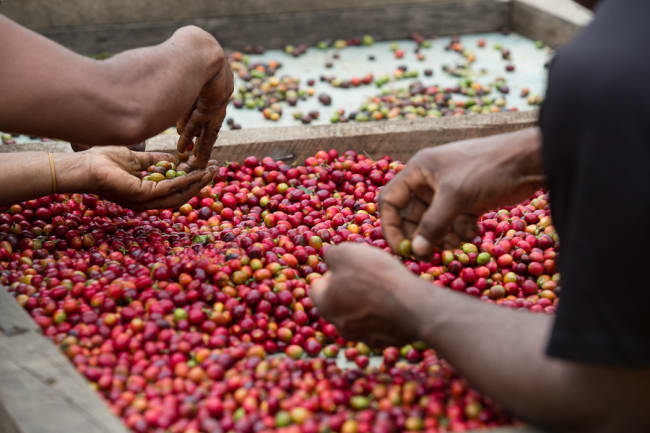
There has been a lot of conversation recently about mold in coffee. It's true that coffee handled improperly can develop mycotoxins, and measurable amounts found in coffee are usually far below the safety limits.
Further, the growing practices and responsible sources required in the specialty market (us) are such that the vast majority of coffee is largely unaffected.
From Healthline.com:
Several studies have found measurable levels of mycotoxins in coffee beans — both roasted and unroasted — as well as brewed coffee:
- Of samples of green coffee beans from Brazil, 33% had low levels of ochratoxin A (5, 6Trusted Source).
- Of coffee brews from commercially available coffee beans in Portugal, 18% contained ochratoxin A (7).
- Aflatoxins have been found in green coffee beans, the highest level in decaffeinated beans. Roasting reduced the levels by 42–55% (8Trusted Source).
- Though 27% of roast coffees contained ochratoxin A, much higher amounts were found in chili (9Trusted Source).
Evidence shows that mycotoxins are present in a large percentage of coffee beans and make it into the final drink. That said, a 2021 study found that there was no historical evidence to be able to say that ochratoxin A is acutely toxic if consumed from coffee or other sources (10Trusted Source).
Plus, their levels are far below the safety limit.
Understandably, you may still not like the idea of having toxins in your foods or beverages. But keep in mind that toxins — including mycotoxins — are everywhere, making it is impossible to avoid them completely.
(https://www.healthline.com/nutrition/the-mycotoxins-in-coffee-myth#in-coffee)
We do not perform regular direct testing for these mycotoxins. Our specialty coffee importer tested for these directly once, on a Sumatran coffee most likely to test positive, and the tests came back negative.
Heres a quick note from our importer:
"The difference between specialty and commodity coffee is not just in the cup, but importantly also extends to production and handling throughout the entire chain. In general, commercial coffees and commercial adjacent specialty coffees are the coffees that are at risk as these are more likely to have the Aw conditions along with the poorer handling and processing that introduce and help sustain microbial activity."
Because of the low, low risk of any toxicity in the specialty coffee that Mighty Missouri produces, we remain vigilant in quality and hyper focused on the human interaction throughout the coffee chain, down to our customers. That's the stuff that keeps us going.
